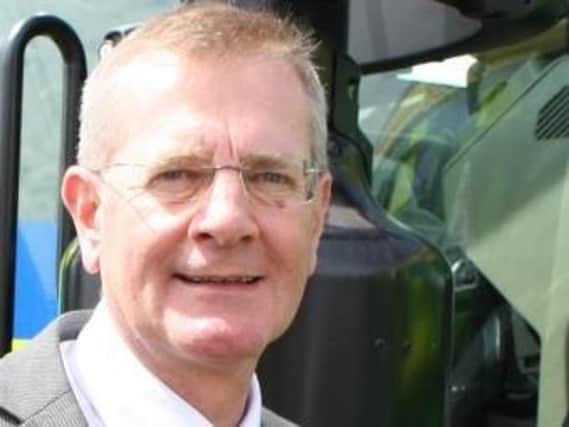Vehicles stolen from rural areas being used as currency by criminal gangs


Clive Harris, agricultural vehicle specialist at insurers NFU Mutual, said the thefts of agricultural vehicles, quad bikes and all-terrain vehicles had all increased across the country last year and warned they would “continue to escalate”.
Speaking ahead of the publication of the insurer’s latest annual rural crime report on Monday, Mr Harris said vehicles stolen from rural areas were often either being used to commit more crimes or were being “used as currency since the implementation of money laundering legislation”.
Advertisement
Hide AdAdvertisement
Hide AdA Government action plan to tackle money laundering led to tougher legislation coming into force last year, as well as a new watchdog which was set up in January this year.
Mr Harris said stolen vehicles were often taken abroad to be sold on.
He said: “Through our work we know that there are international links with UK criminals; the UK to Eastern Europe is common.
“However, recently one investigation has traced stolen agricultural vehicles from the UK through Ireland, Belgium and Denmark.
Advertisement
Hide AdAdvertisement
Hide AdThis is just one example of the scale of the organised criminal activity that is going on.
“This should not detract from the volume of stolen plant and agricultural vehicles circulating in the UK, with different levels of disguise or identity falsification.”
Mr Harris expressed concerns that police forces were now less likely to send officers out to reported thefts or forensically examine recovered vehicles. He also urged forces to do more to co-operate on cross-border thefts.
A senior police officer has also warned that organised criminals can use the illegal sport of hare coursing to launder money by placing bets of thousands of pounds on the outcome.
Advertisement
Hide AdAdvertisement
Hide AdDeputy Chief Constable Craig Naylor, the National Police Chiefs Council lead for rural affairs, said: “It fits into organised criminality.
“Many of the people we see hare coursing across the flatter stretches of England and Wales are involved in other forms of criminality.
“They are involved in drug-dealing, people-trafficking, modern-day slavery. Hare coursing is often seen as their relaxation, yet the money involved can be quite ridiculous. Dogs being sold for hare coursing can cost in excess of £25,000, and bets on some of the bigger events are in excess of £50,000.
"That is criminal money. That may or may not be being laundered through that process but it is a huge area for us and what we would like is more intelligence on who is involved.”
Advertisement
Hide AdAdvertisement
Hide AdMr Naylor said prosecutions could help them to recover this criminal cash and “put it back in the public purse, where it should be”.
The flatter parts of East Yorkshire are particularly affected by hare coursing gangs, with most reports coming from Driffield, Goole and Holderness. In the nine months to April, Humberside Police received 508 reports of hare coursing.
Wildlife and rural crime officer Brandon Ward said when criminals begin the season again at the end of the year, “we will be actively looking to find them and bring them to justice.”